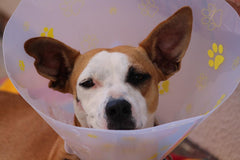
If you're into healthy eating, you've undoubtedly heard about the benefits of omega-3 and omega-6 fatty acids. Research suggests that these fatty acids can significantly impact our overall well-being and health.
Indeed, having an adequate dosage of omega-3 and omega-6 improves joint, heart, eye, brain, and nerve health. Did you know, though, that these fatty acids can also benefit your dog and feline friend? Yes, there is an omega for cats!
If you want to give your pet the best life possible, here's what you need to know about this powerful supplement.
What Is Omega for Cats?

Omega for cats is essentially the same as omega-3 and omega-6 are for humans. To be more precise, they're the same base compounds, just with different ratios (since cats' bodies are different than ours, obviously). As noted above, the health benefits for cats are the same as for humans too.
There are three omega-3 fatty acids for cats - ALA, DHA, and EPA. Each one of these acids plays a vital role in your cat's health. For example, DHA is a foundational building block of the brain. It supports the development of vision and the central nervous system. By contrast, EPA promotes joint health and lowers inflammation.
Chronic, long-term diseases can sometimes result from that low-level inflammation, so keeping that under control helps boost your feline's joint and heart health.
There is a third fatty acid, ALA. Short for alpha-linolenic acid, your feline companion cannot make use of this compound directly. Instead, your cat, like dogs and humans, can convert ALA to either DHA or EPA. This conversion typically happens poorly, though.
So the bulk of your cat's omega-3 supplement should be DHA and EPA. If you're giving your pet an ALA-based one, it likely won't work that well for them.
Where Do These Fatty Acids Originate?

Your pets get these acids the same way humans do - through their diet. The food they eat contains each of these essential compounds. However, these acids come from different parts of the food chain.
EPA and DHA both come from animal proteins and algae. For example, when you eat fish, that's very high in EPA and DHA, but not very high in ALA. Since your cat is probably not eating algae, it's safe to say that your pet is getting most of their necessary EPA and DHA from the fish, chicken, beef, or lamb that they eat as part of their diet.
By contrast, you can find ALA in plant matter. In the wild, cats wouldn't eat much in plants (they are carnivores). However, your pets probably are eating quite a bit of plant matter in the kibble or wet meals you serve them. Many of these foods contain things like "brewers rice" or "wheat flour." Depending on the processing of these foods, they could have ALA.
So it is safe to say that your cat is probably already getting some omega for cats. If they didn't get any of these essential acids, they wouldn't be able to survive. That doesn't mean that they're getting enough, however.
What Are Omega-3 Supplements for Cats?

With our diets, sometimes we don't get enough omega-3 fatty acids. We don't eat enough meat or eat enough plant-based matter that contains alpha-linolenic acid. Either way, we sometimes don't get enough.
The same can be true for your pet. The food you're feeding could be rich in ALAs (which your pet might have a hard time converting). Or, the food might be rich in omega-6 acids, which could interfere with the omega-3 acids. Finally, your cat might even need a higher dosage of omega-3 to help with arthritis or a heart issue.
There are many reasons why your cat might need additional omega-3.
That's when you would want to get omega-3 supplements for cats. These supplements are very similar to human supplements, except that they have a different formulation. They still contain EPA, DHA, and ALA, as the human ones do, but they lean more heavily towards the EPA and DHA side since cats have less use for ALA.
You can find these supplements at various pet stores. You can, in theory, give your cat the fish or krill oil that you take. At the right dosage, it won't harm them. However, the human version won't be quite as beneficial as one formulated specifically for cats.
Fish oil supplement for cats: the easy and healthy way to boost your cat's immune system
A great and easy way to supplement your cat's diet is by adding fish oil to their food. Using this option, there is no need to change your cat's diet. Many fish oil supplements come with a pump dispenser which means there is no prep time or clean up needed. Simply pump the oil over your cat's food, and that's it!
Pay attention to the ingredients. If the product is labeled "fish oil" or "omega oil," look at what specific fish it contains. Ideally, you want to buy Wild-Caught fish oil as this one will be the most nutritious and high quality.
Lower quality fish oil may have an unpleasant smell that your cat won't like. On the other hand, high quality oils like Wild-Caught Alaskan Salmon Oil, will have a natural salmon scent that most pets are fond of.
While you do your own research on which oil to purchase, you are welcome to check out the oil that we sell here at Petsmont. Our oil is Wild-Caught in clean Alaskan Waters. It only contains Wild Alaskan Salmon and Wild Alaskan Pollock, both fish are great for cats and nutritious in Omega 3, 6 and 9.
We third-party test our oil for pollutants. While all fish and seafood contain Mercury, our oil has an almost undetectable level which makes it healthier than 95% of other fish and seafood you can find at the store. The reason behind this is that Wild Alaskan fish is extremely clean since Alaskan waters are clean of pollutants.
Check out our Wild Alaskan Salmon Oil Formula for cats & dogs here.
Omega for Cats: Should I Give My Pet This Supplement?

Whether or not you give your pet an omega-3 supplement or not depends on a few factors. First, is this purely preventative, or are you noticing some things about your pet that you think might have a deficiency in omega-3 as their cause? If it's preventative, you may wish to consider changing to a food that's higher in omega-3s. After all, the best source of omega-3 for cats is arguably one that's natural - their food!
If, on the other hand, you think they might have a deficiency in omega-3, speak with your veterinarian. They can guide you and give you a safe dosage to give to your feline (typically, this is 30-50 mg per kg of weight). Additionally, your vet can recommend the best cat food for your cat that your pet can take along with the omega supplement.




